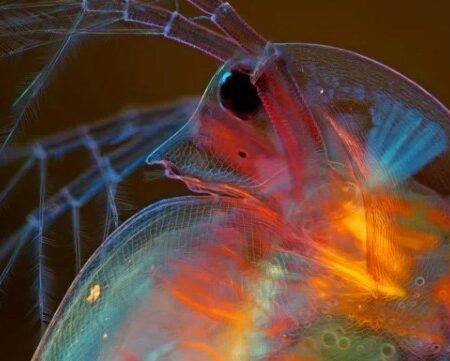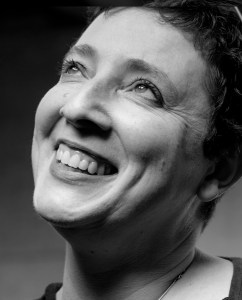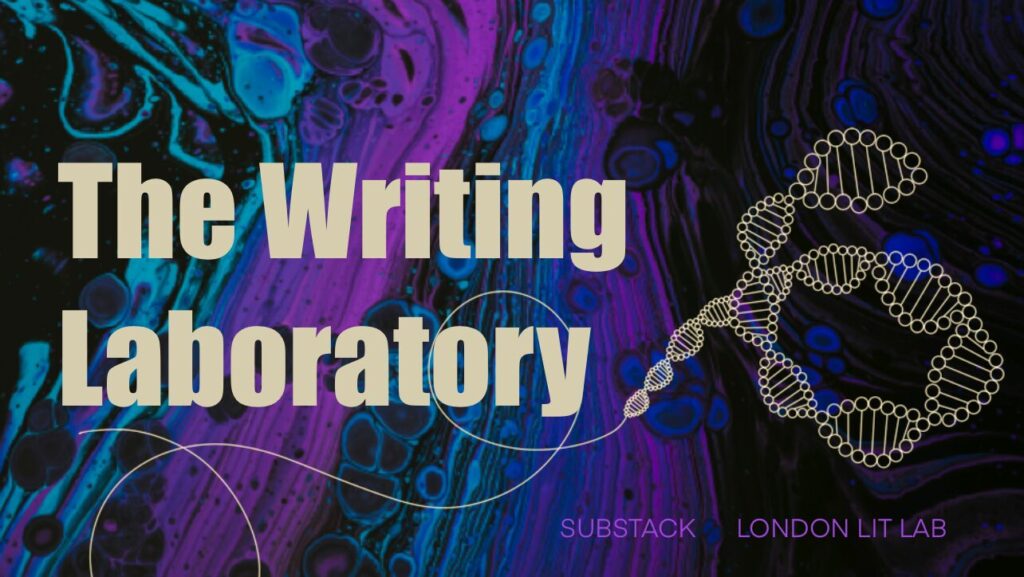The word “science” covers many fields, from the tiniest particles out into the furthest galaxies. What it all has in common is a search for explanations. How does electricity work? What happens in the brain of an octopus? What is it like to live at the deepest point of the ocean? What do our gut bacteria do? Researchers spend their days thinking of the best questions to ask, then dreaming up experiments for how to find not necessarily a definitive answer, but some sort of theory that works for the moment, given what we know now, what our current technologies let us see, hear, touch, smell, taste. Scientists ask themselves: what might happen if…? Doesn’t this sound a bit like what writers do, too?
Observing, stirring, colliding, growing, theorising, collaborating, weighing, illuminating, imagining. Unless we’ve worked in science, most of us have little idea of what is it like to be a researcher. What might the workplace of a scientist (lab, field, office, particle collider) look like? How do you do science on a daily basis, designing experiments, gathering or inventing tools, analysing your results? What happens in a fume cupboard, or when something is frozen to absolute zero? What is that liquid in the jar over there? What makes a rock, an electron, a planet? Who invents all those new names?
It can often be useful when you’re trying to write about something to not look directly at it, to approach it from the side or through something apparently unrelated. You may not have enjoyed science lessons at school – or you may already be sci-curious, or work in research. Wherever you are coming from, let science be your tool, your plaything, let it stimulate your creative brain. Over four weeks we’re going to experiment, stealing from science’s rich vocabularies and concepts, colliding and mixing them in our virtual writing laboratories, and seeing what emerges.
Course Outline
- Four assignments, including reading material, discussion prompts and writing exercises
- Two optional 1-hour intensive writing sessions with Tania, via Zoom – morning and evening options for both (times to be confirmed once all participants have registered)
- Opportunity to share your work (not obligatory)
- An online writing community, lasting beyond the end of the course
This course is four weeks long and asynchronous (so you can log in and add to the discussion whenever you want). Your course tutor, Tania Hershman, will upload a new assignment each week. This will include texts to read and discuss, teaching from Tania, and writing exercises. You can read and write in your own time, and share your thoughts and writing with others using message threads on the course page. In weeks 1 and 4, you can join an intensive writing session with Tania via Zoom, at either a morning or evening session. There is no obligation to share work on this course unless you would like to!
Course Content
Each weekly assignment will give you a different, science-flavoured writing exercise to get you writing a new draft, in whatever form suits you, from short stories to poetry to creative non-fiction. Each assignment will also include reading material: both science-inspired creative work that Tania would love to share with you, and ideas for where to learn more about the world of science and hear the voices and passions of the scientists themselves.
Time Commitment
Outside of the two optional Zoom sessions, you can work through the material and do writing exercises at your own pace. To help with your planning, we suggest you allow a minimum of three hours each week, including time to read, write and discuss.
Learning Online
The course will take place online, in a closed group on a platform called Slack. You’ll need to have internet access to download assignments and reading material, but the rest of the time you can pick and choose when you log in. Slack is easy to use, and we’ll provide you with full instructions and guidance before the course starts. On Slack, we won’t have scheduled live chats (except for the optional Zoom sessions), but there will be plenty of opportunity to interact with Tania and the other course participants in discussion threads, throughout the four weeks.



